Andrew Ross Sorkin Quotes & Sayings (Page 2)
Andrew Ross Sorkin quotes and sayings page 2 (journalist). Here's quote # 11 through 20 out of the 44 we have for him.
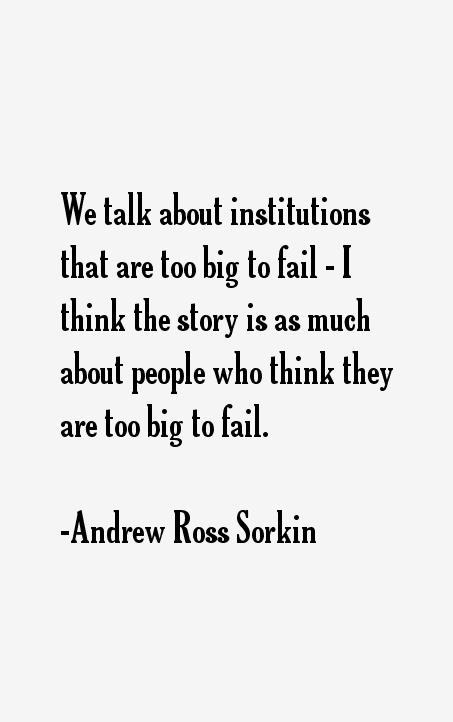
“We talk about institutions that are too big to fail - I think the story is as much about people who think they are too big to fail.”
“What keeps me up at night? Waking up to a scoop at another newspaper or on TV. I'm probably competitive, almost too much so. I will stay up till the Web sites at night roll over. And if they don't roll over, I'll stay up until it's done. I'll wake up at the crack of dawn, or in the middle of the night even, just to go and check and see.”
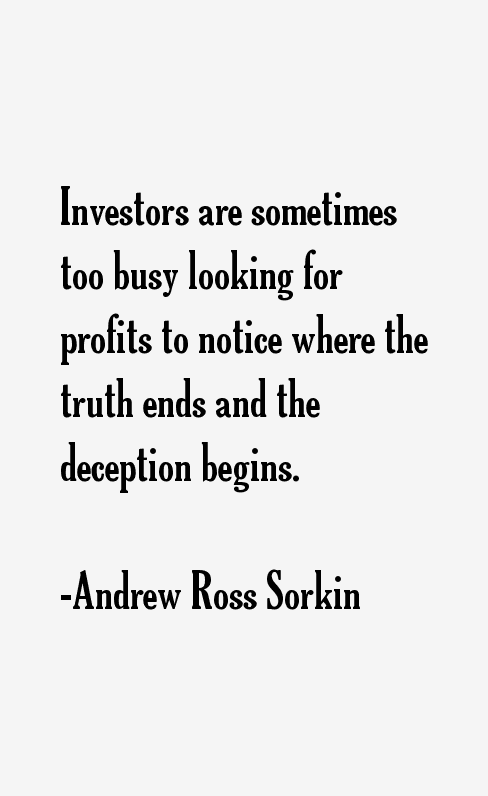
“Investors are sometimes too busy looking for profits to notice where the truth ends and the deception begins.”
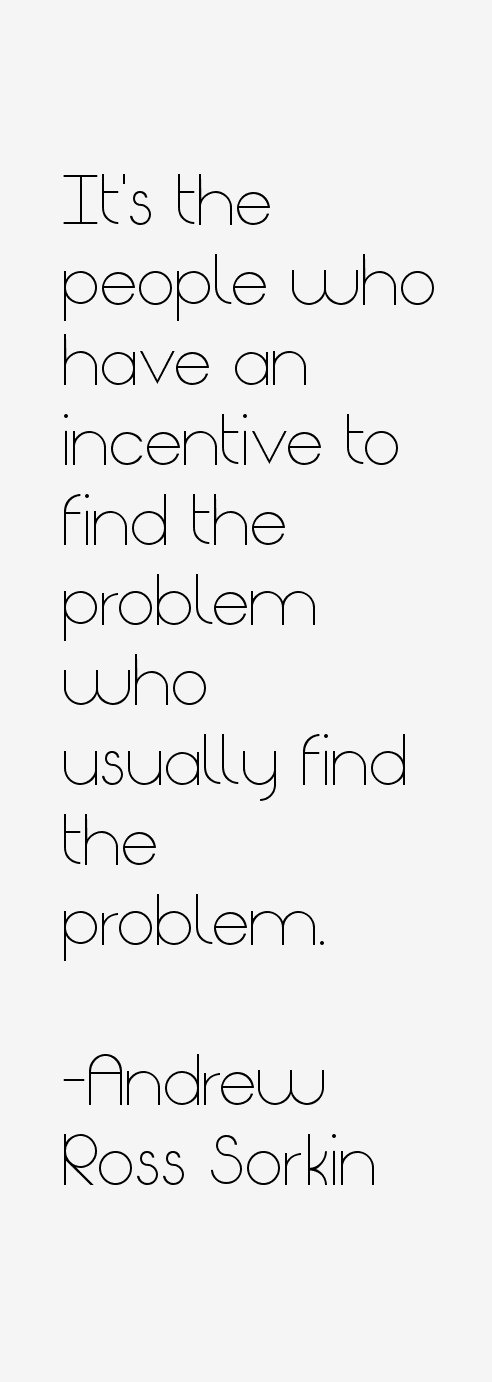
“It's the people who have an incentive to find the problem who usually find the problem.”
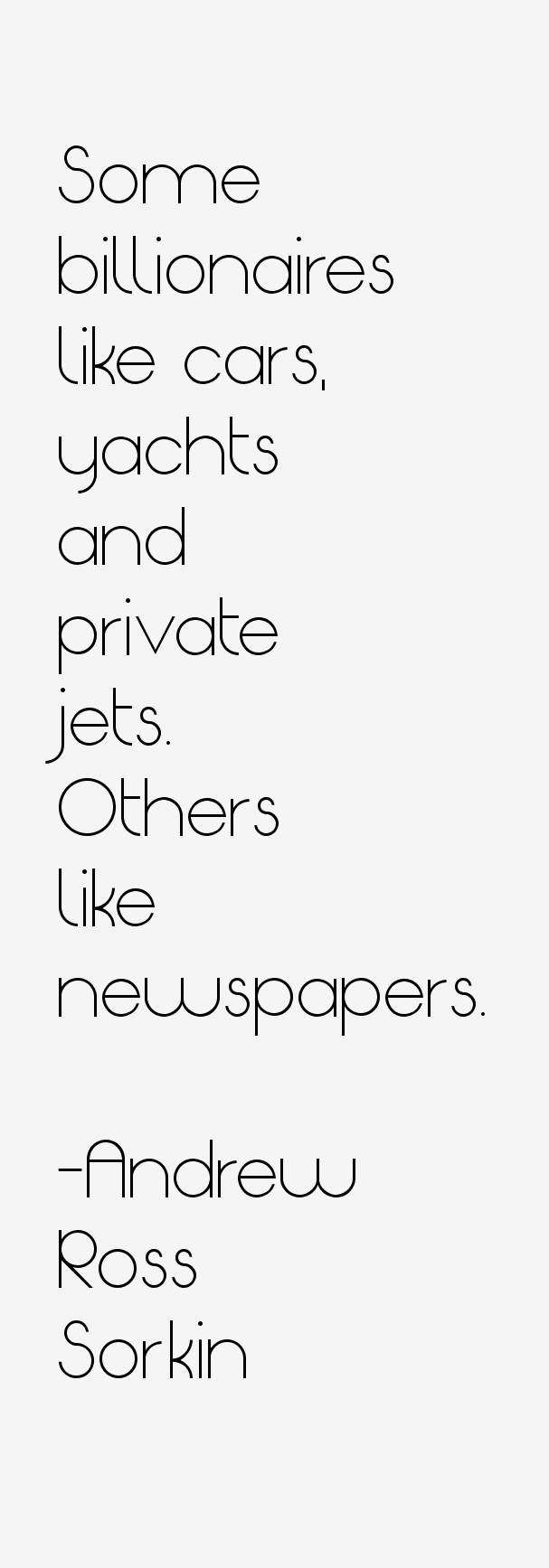
“Some billionaires like cars, yachts and private jets. Others like newspapers.”
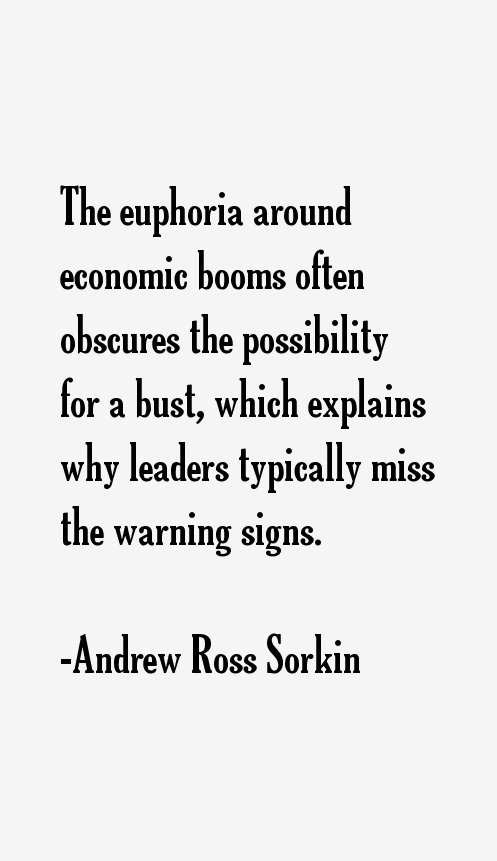
“The euphoria around economic booms often obscures the possibility for a bust, which explains why leaders typically miss the warning signs.”
“No one suggested Lehman deserved to be saved. But the argument has been made that the crisis might have been less severe if it had been saved, because Lehman's failure created remarkable uncertainty in the market as investors became confused about the role of the government and whether it was picking winners and losers.”
“In truth, in the fairy-tale version of bailing out Lehman, the next domino, A.I.G., would have fallen even harder. If the politics of bailing out Lehman were bad, the politics of bailing out A.I.G. would have been worse. And the systemic risk that a failure of A.I.G. posed was orders of magnitude greater than Lehman's collapse.”
“The genre of narrative business books that I love so much - the ones that have a you-are-there quality - was invented, or so it is said, in 1982 by David McClintick, who wrote 'Indecent Exposure,' a rollicking good read about a Hollywood scandal and the ultimate boardroom power struggle at Columbia Pictures.”
“Unfortunately, I think it's very difficult to separate policy from politics. In a perfect world, in some instances, you probably would want to. In other instances, you'd probably say that the political element is important because it should, in a perfect world, match what the stakeholders need or want, or what the public is after.”
Andrew Ross Sorkin Quotes Rating
No Ratings Yet
Leave A Comment
























